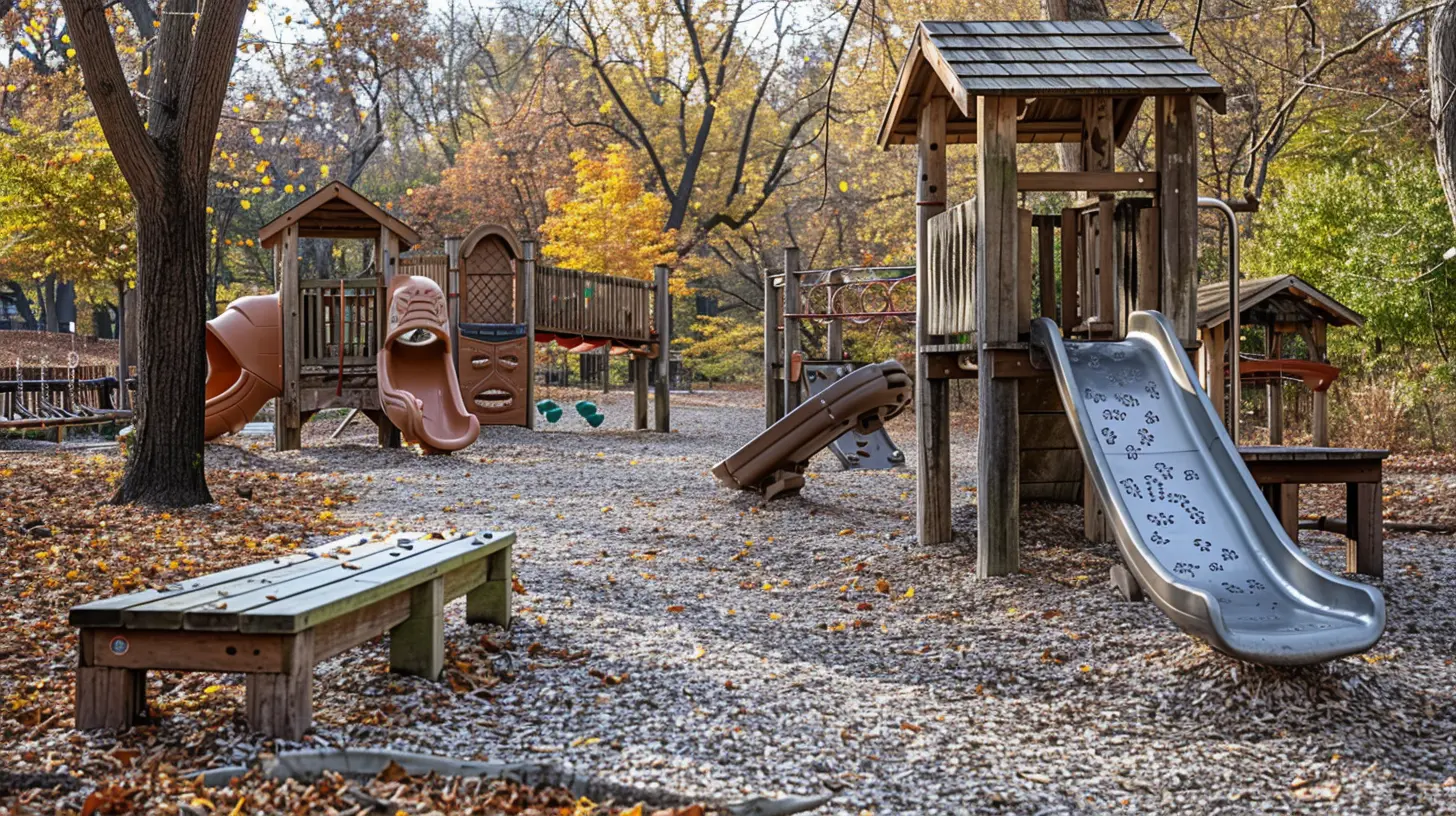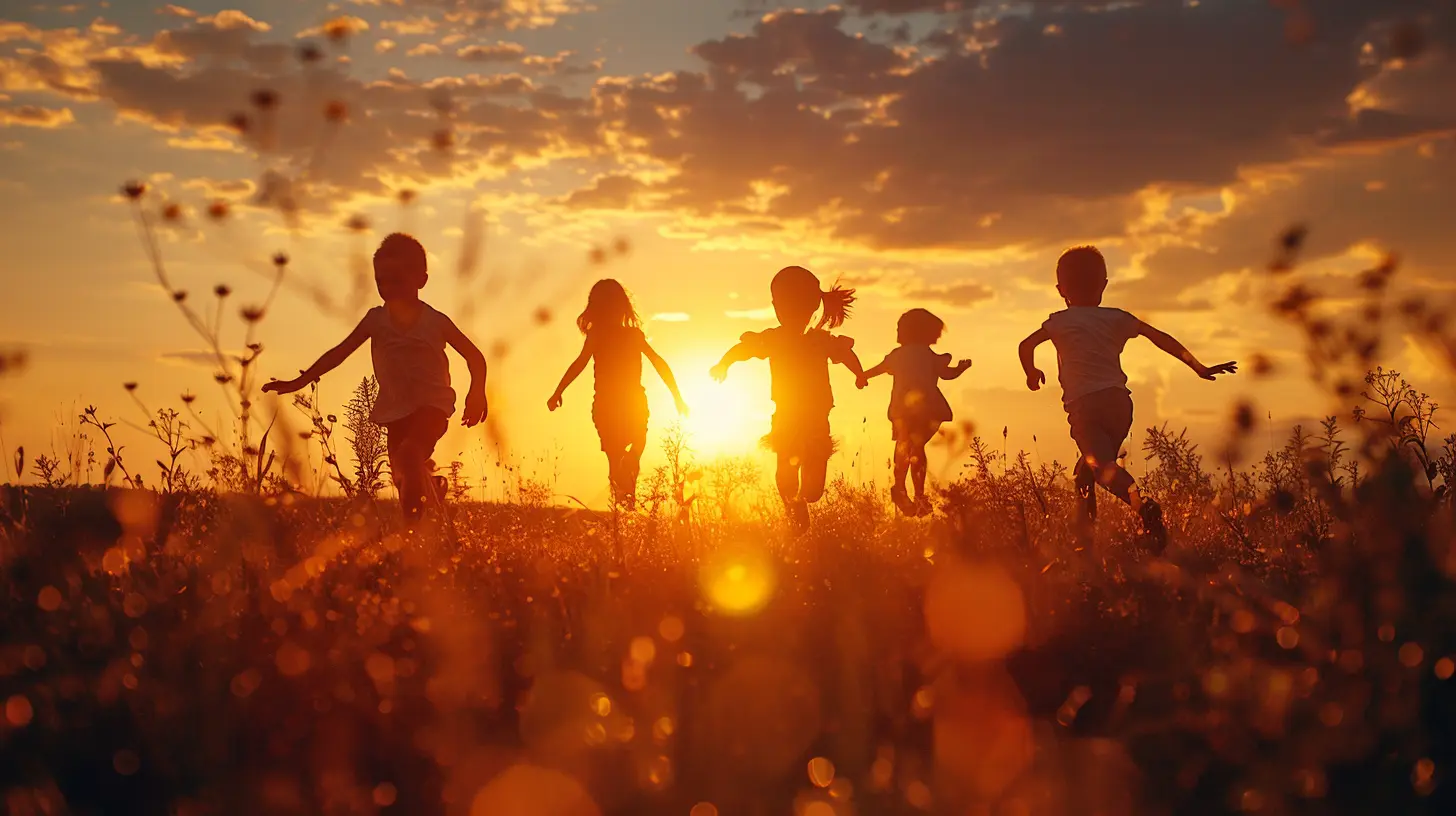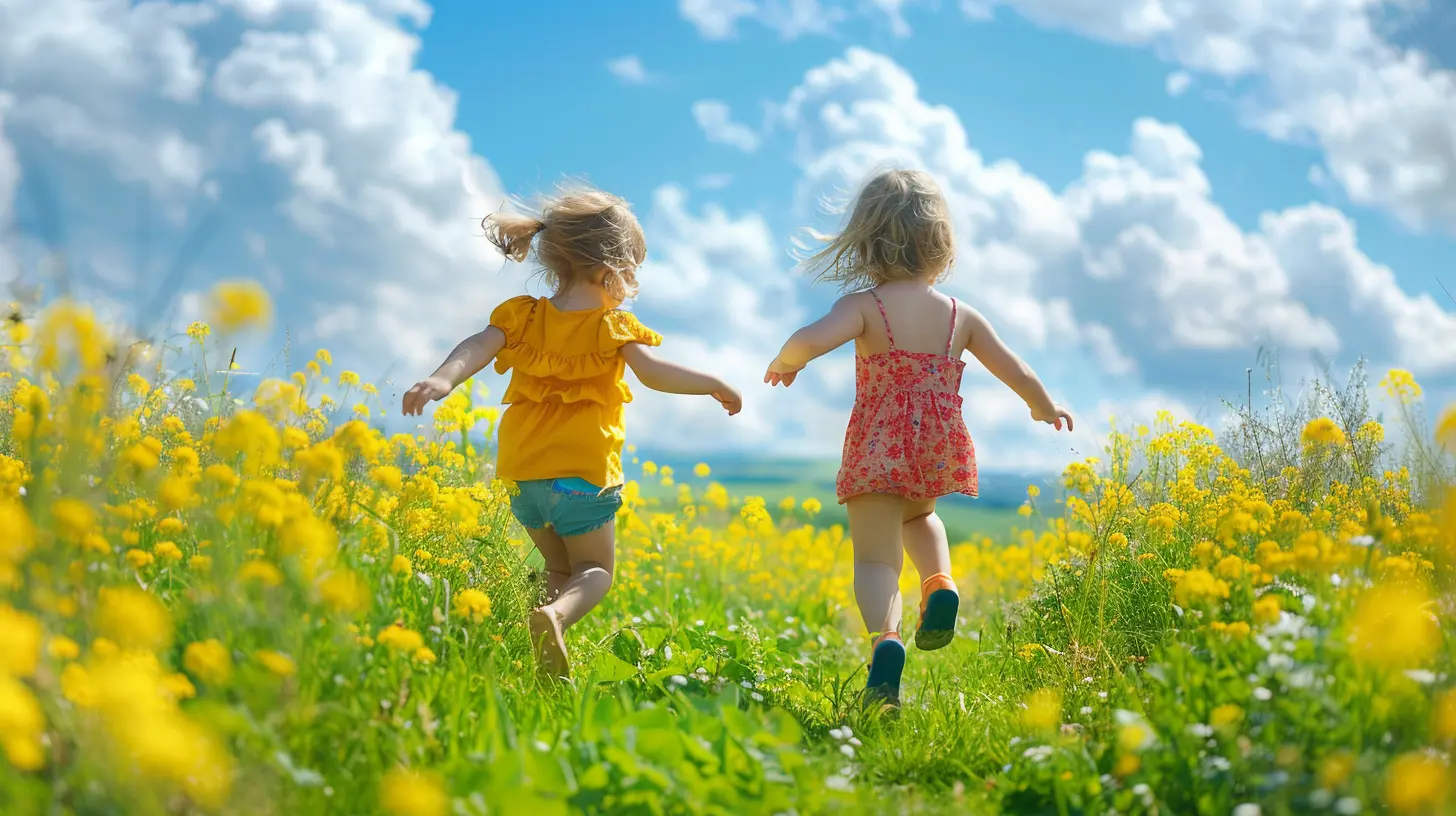The Importance of Outdoor Play for Children’s Physical Health
10 July 2025
Let’s be real: kids today spend way too much time indoors glued to screens. Whether it's video games, tablets, or endless hours in front of the TV, many children are missing out on one of the simplest, most powerful tools for healthy growth — outdoor play. In a world that's becoming more digital by the minute, it's time we pause and remember how crucial it is for children to get outside, move their bodies, and connect with the real world around them.
In this post, we're going to dive deep into why outdoor play isn’t just a fun pastime — it’s absolutely essential for your child’s physical health. Not to mention, it can set the tone for a lifetime of healthy habits.
Why Outdoor Play Should Be a Daily Habit
Picture this: a sunny afternoon, kids climbing trees, riding bikes, chasing each other through a park. They’re laughing, breaking into a sweat, completely immersed in the moment. It’s not just good old-fashioned fun — it’s childhood at its healthiest.Outdoor play isn’t just about burning off energy. It’s about building bodies, boosting development, and supporting long-term well-being.
Here’s why outdoor time should be on your child’s daily to-do list.
1. Builds Stronger Bones and Muscles
Running, jumping, climbing, and even playing tag all engage multiple muscle groups. These activities help children:- Develop coordination
- Improve balance
- Strengthen muscles
- Build bone density
Physical activity, especially high-impact movement like running or jumping, encourages the body to form stronger bones — crucial while they’re still growing. Want them to have fewer broken bones and better posture? Let 'em play outside!
2. Promotes a Healthy Weight
Let’s face it — childhood obesity has become a major concern across the globe. Kids need movement. They need to sweat. Outdoor play is one of the most effective, natural ways for children to stay physically fit and maintain a healthy weight.Instead of counting calories or stressing over food choices (though those matter too), make it a habit to encourage simple outdoor games. A game of soccer, basketball, or even an intense session of hide-and-seek can get them moving enough to burn calories and keep weight in check.
3. Boosts Heart Health
Outdoor play gets your child’s heart pumping. Activities like biking, skipping rope, or running around the playground improve cardiovascular endurance. This means better circulation, stronger heart muscles, and lower risk of heart disease later in life.Think of it this way — every lap around the yard is like depositing into their future health savings account.
4. Enhances Motor Skills and Coordination
Swinging, climbing monkey bars, balancing on logs — all these actions may seem simple but they’re doing wonders for your child's motor skills.Kids who spend time outdoors tend to develop:
- Better hand-eye coordination
- Improved agility
- Quicker reflexes
- Better spatial awareness
From learning how to ride a bike to mastering the art of skipping stones, these seemingly small tasks are like brain and body workouts.
5. Encourages Better Sleep Patterns
Ever notice how your child sleeps like a rock after a day at the park? There’s science behind that.Outdoor play:
- Regulates the body’s internal clock (thanks to exposure to natural sunlight)
- Reduces stress and anxiety
- Helps burn off excess energy
All of which leads to deeper, more restful sleep. And let’s be honest — well-rested kids are just easier to live with, right?
6. Reduces the Risk of Chronic Illness
Here’s something not enough people talk about: a sedentary childhood can lead to chronic health problems in adulthood. These include:- Type 2 diabetes
- High blood pressure
- High cholesterol
- Certain types of cancer
Outdoor play isn’t just about health in the now — it’s preventative medicine for the future. Starting good habits young gives children a better shot at a long, vibrant life.
7. Provides a Natural Dose of Vitamin D
We’ve all heard about the importance of Vitamin D for immunity, mood, and bone health. But did you know that most kids don’t get enough of it?The best source? Sunlight.
Just 10-15 minutes of sun exposure a day (without sunscreen) can give your child a great boost of Vitamin D. Of course, balance is key — always use sunscreen for extended periods. But that daily sunshine can work wonders for their immune function and mood.
8. Encourages Active Habits for Life
Kids who move more, grow up to be adults who move more. Period.When outdoor play becomes a regular part of their routine, it normalizes exercise. Movement becomes fun — not a chore. And habits formed in childhood are notoriously hard to break (as any parent who has tried to change a picky eater’s diet can tell you).
Encouraging outdoor play today might just mean fewer arguments over gym memberships and workout routines 20 years from now.
9. Reduces Screen Time (And Its Negative Effects)
Let’s get real — too much screen time can lead to:- Poor posture
- Eye strain
- Sedentary habits
- Decreased social skills
- Increased anxiety
When kids are outside, they’re not staring at a screen. They're engaging with their environment, solving problems, using their imagination, and interacting with others. It’s the kind of old-school learning that no app can replicate.
10. Supports Social and Emotional Growth
Although this article focuses on physical health, it’s impossible to ignore the fact that outdoor play also:- Builds confidence
- Teaches cooperation
- Reduces stress
- Boosts mood
When a child successfully climbs a tree or masters a new trampoline trick, their self-esteem skyrockets. They learn limits, they take measured risks, and they bounce back from falls — literally and emotionally.
All of this supports a resilient mindset and a healthy approach to physical challenges.
Common Barriers to Outdoor Play — And How to Beat Them
We get it. Life is busy. Screens are tempting. Schedules are packed. But if outdoor play is so beneficial, we owe it to our kids to prioritize it.Here are some common hurdles and how to overcome them:
1. “There’s No Time”
Solution: Build it in. Even 20-30 minutes a day can make a big difference. Consider walking to school, having dinner outside, or setting up a quick game before bedtime.2. “The Weather’s Bad”
Solution: There’s no bad weather, just bad clothing. Invest in rain boots, coats, and other outdoor gear so playing outside doesn’t come to a screeching halt the moment it gets chilly.3. “It’s Not Safe”
Solution: Choose local parks, nature trails, or your own backyard. Get involved in community initiatives that support safe play areas. And of course, supervise when needed.4. “They Don’t Want To”
Solution: Lead by example. If you’re excited about being outside, your kids are more likely to be too. Start a family tradition of weekend hikes or backyard soccer matches. Make it fun, not forced.Simple Outdoor Activities That Keep Kids Moving
Need some inspiration? Here are a few easy-peasy ways to encourage outdoor play:- Nature scavenger hunts
- Obstacle courses
- Sidewalk chalk games (like hopscotch)
- Biking around the block
- Water balloon fights
- Tree climbing (supervised, of course)
- Gardening together
- Family walks or hikes
- Jump rope or hula hoop contests
The point isn’t perfection — it’s participation.
Final Thoughts: Let Nature Be Your Child’s Gym
At the end of the day, outdoor play is one of the most natural, affordable, and effective ways to boost your child’s physical health. It's not just a break from screens — it’s movement with meaning. It builds bodies, strengthens systems, and gives our kids a chance to grow up strong, confident, and connected to the world around them.So, let them run. Let them wobble, climb, fall, and get back up. Let them get dirty. Because every scrape, every sweaty forehead, every burst of laughter outside is a step toward a healthier future.
Now, go ahead — kick ‘em out (with love, of course). Their bodies and brains will thank you.
all images in this post were generated using AI tools
Category:
Childrens HealthAuthor:

Kelly Snow
Discussion
rate this article
1 comments
Julian Hubbard
Outdoor play isn’t just important; it’s essential. Let kids run wild, explore, and connect with nature. It builds healthy bodies and confident minds—no excuses!
July 18, 2025 at 4:29 PM

Kelly Snow
Absolutely! Outdoor play is vital for children's physical health and overall development. It fosters exploration, creativity, and resilience while promoting a love for nature.


